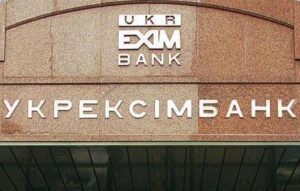Population structure of ukraine (data from ukrainian institute of future)
Source: Open4Business.com.ua and experts.news

Belgium will allocate an additional 9 million euros in aid to Ukraine to repair its damaged energy infrastructure, Belgian Minister of Development Cooperation Caroline Genne said on Friday.
“Ukraine’s energy infrastructure is old and too centralized, which makes it very vulnerable,” the minister said, as quoted by RTBF.
The 9 million euros will be channelled through the United Nations Development Program (UNDP), which has organized a system that allows for the rapid procurement of spare parts and the supply of new equipment to repair damaged or destroyed infrastructure. In doing so, UNDP “emphasizes sustainable and decentralized energy sources,” Genne explained.
According to her, “Together with military assistance, this support will help strengthen Ukraine’s resilience.”

State-owned Ukreximbank has provided $4.5 million to replenish working capital and purchase equipment for Dnipro-based agricultural producer Agro Oven LLC, according to a press release from the financial institution.
It is specified that $2.3 million of the total amount was provided for three years to refinance the cost of purchasing equipment for poultry farming, and the remaining $2.2 million was provided for 1.5 years to replenish working capital to ensure uninterrupted operations.
According to the press service of the financial institution, the financing rates are classified as confidential information.
According to the release, Agro Oven LLC is part of the Agro Oven Group of Companies, which is a leader in the production of livestock products in the Dnipro region and is among the top 10 poultry producers in Ukraine and at the same time among the top 3 largest exporters of poultry products in Ukraine. According to the website, the company started its operations in February 1998 with 4,000 employees in agriculture, livestock, poultry, and its own processing plants. It is stated that production is provided by four agricultural farms of the corporation in Magdalynivka, Solonyansky, Novomoskovsky, and Dnipropetrovsky districts of Dnipropetrovska oblast.
“Agro Owen supplies products under its own brands Dlia Svoi, Zolotko, Svoi Potato, Dniprovskyi Myasokombinat, and also sells them through its own retail network, Dim Myasu.
The ultimate beneficiary is Viktor Zavorotnyi (65%). According to OpendataBot, the company increased its revenue in 2023 by 14.4% to UAH 4.04 billion, while the net profit of the agricultural producer jumped 2.4 times to UAH 166.1 million. The number of employees decreased by 121 to 1389 over the year, according to the platform.
Number of dead and wounded civilians in Ukraine from 24.02.2022 till 31.03.2024 un data
Source: Open4Business.com.ua and experts.news

At a meeting on May 3, shareholders of Rarity Insurance Company (Kyiv) decided to increase its authorized capital to UAH 53.7 million by conducting an additional issue of shares worth UAH 23.7 million.
As the company reported in the information disclosure system of the National Securities and Stock Market Commission (NSSMC), the issue will be carried out by increasing the nominal value of shares from UAH 10 to UAH 17.9 by allocating to the authorized capital part of the profit earned by the company in 2018-2023.
“IC Raritet” PrJSC has been carrying out insurance activities since 1999. The company’s shareholders are four individuals – residents of Ukraine. The insurer operates on the basis of 17 licenses (5 compulsory and 12 voluntary types of insurance).

In 2023, Vega, a telecom provider of PJSC VF Ukraine (Vodafone Ukraine), increased its revenue by 15% compared to 2022 to UAH 491.2 million, the company’s press service said on Tuesday.
“In 2023, the national telecom operator Vega’s revenue amounted to UAH 491.2 million, up 15% compared to 2022. The main sources of the company’s revenue are broadband high-speed Internet access services, IP telephony for business segment customers and revenue from sales of telecom services to other operators/providers,” the press service said.
It is noted that revenue from services provided to B2B and B2C customers using modern fiber-optic technologies amounted to UAH 261 million in 2023.
With the support of Vodafone Ukraine, the provider increased its capital investments by 173% compared to 2022 to UAH 281 million, investing mainly in the modernization and development of networks and energy efficiency, the statement said.
“Capital investments increased by 173% compared to 2022 and amounted to UAH 281 million. This mainly includes the construction of new GPON (Gigabit Passive Optical Network) Internet zones, modernization of networks from FTTx to PON technology, purchase of batteries and generators to provide technical sites with alternative power sources in case of power outages,” said Vega CEO Serhii Skrypnikov.
According to him, in 2024, Vega will continue to expand its GPON coverage and will also work on the full completion of the project to modernize the network from outdated FTTx to GPON technologies.
As part of the integration of the national broadband Internet access operator Frinet into Vodafone Ukraine, the company continues to modernize its network to improve the energy efficiency of the company’s network, Vega’s press service said.
“In 2024, the company plans to make record investments to provide backup power to sites and ZIP equipment to restore the network,” the statement said.
Earlier, PJSC VF Ukraine reported that in 2023 the company increased investments in the development of new fiber-optic lines based on Vega, and also acquired a 90.6% stake in Frinet LLC in August last year. Last year, the company actively expanded its coverage in the cities where it operates and started building GPON networks in Mykolaiv and Ivano-Frankivsk. In 2023, the company built a network in 3.125 thousand apartment buildings with access to modern high-speed Internet for 411.426 thousand households. In total, Vodafone Gigabit Net (the service is provided via a fiber-optic network designed using GPON technology) is available in more than 6 thousand homes in Ukraine. The number of energy-efficient Internet users using GPON technology has tripled.